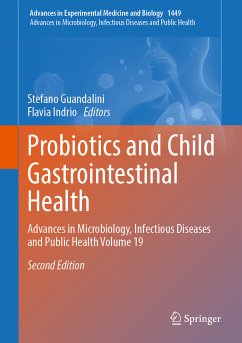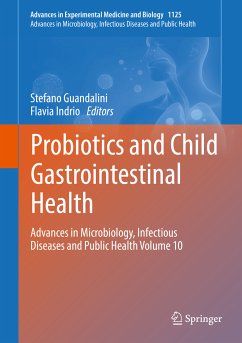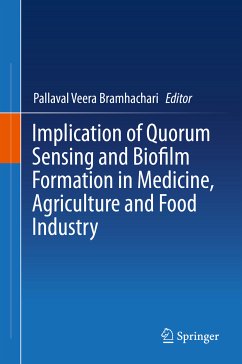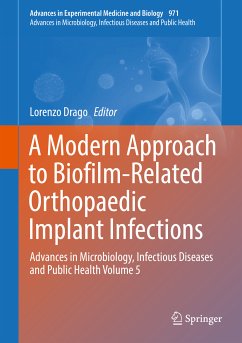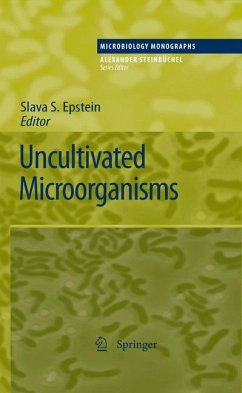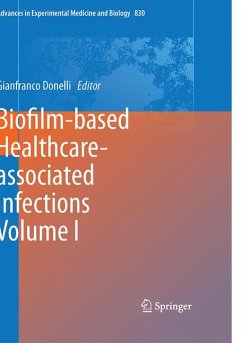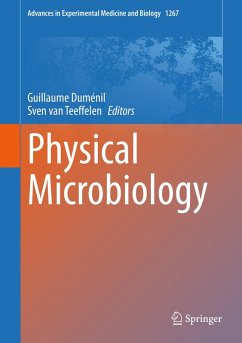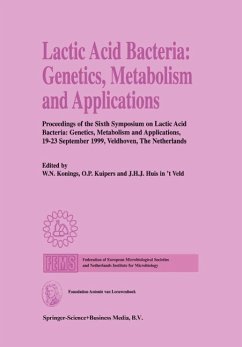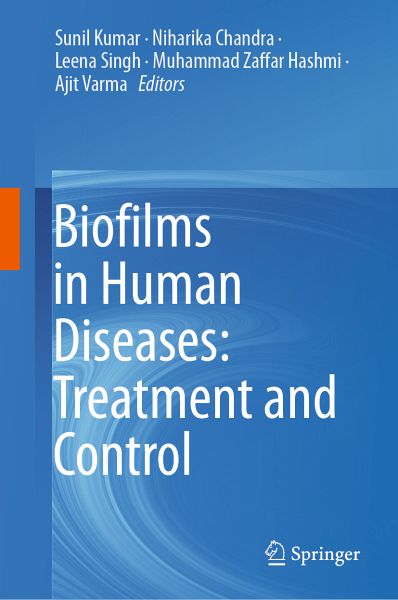
Biofilms in Human Diseases: Treatment and Control (eBook, PDF)
Versandkostenfrei!
Sofort per Download lieferbar
72,95 €
inkl. MwSt.
Weitere Ausgaben:

PAYBACK Punkte
36 °P sammeln!
This book highlights treatment strategies for bacterial biofilms in connection with a variety of human diseases. In particular, it reviews bacterial biofilm formation and its mechanism.Topics covered include biofilms in human health, the role of biofilms in mediating human diseases, and methods for testing bacterial biofilms. Further sections concentrate on biofilm-mediated diseases in different parts of the human gastrointestinal tract, while therapeutic strategies for biofilm control and natural agents that disrupt bacterial biofilms are also covered. Readers will also find the latest advanc...
This book highlights treatment strategies for bacterial biofilms in connection with a variety of human diseases. In particular, it reviews bacterial biofilm formation and its mechanism.
Topics covered include biofilms in human health, the role of biofilms in mediating human diseases, and methods for testing bacterial biofilms. Further sections concentrate on biofilm-mediated diseases in different parts of the human gastrointestinal tract, while therapeutic strategies for biofilm control and natural agents that disrupt bacterial biofilms are also covered.
Readers will also find the latest advances in probiotics and biofilms, as well as the use of probiotics to counteract biofilm-associated infections. Biofilms and antimicrobial resistance are discussed. Subsequent chapters address the management of inflammatory bowel disease via probiotics biofilms, as well as the role of probiotics bacteria in the treatment of human diseases associated with bacterial biofilms.
The book is chiefly intended for clinicians/scientists in the fields of medical microbiology, applied microbiology, biochemistry, and biotechnology.
Topics covered include biofilms in human health, the role of biofilms in mediating human diseases, and methods for testing bacterial biofilms. Further sections concentrate on biofilm-mediated diseases in different parts of the human gastrointestinal tract, while therapeutic strategies for biofilm control and natural agents that disrupt bacterial biofilms are also covered.
Readers will also find the latest advances in probiotics and biofilms, as well as the use of probiotics to counteract biofilm-associated infections. Biofilms and antimicrobial resistance are discussed. Subsequent chapters address the management of inflammatory bowel disease via probiotics biofilms, as well as the role of probiotics bacteria in the treatment of human diseases associated with bacterial biofilms.
The book is chiefly intended for clinicians/scientists in the fields of medical microbiology, applied microbiology, biochemistry, and biotechnology.
Dieser Download kann aus rechtlichen Gründen nur mit Rechnungsadresse in A, B, BG, CY, CZ, D, DK, EW, E, FIN, F, GR, HR, H, IRL, I, LT, L, LR, M, NL, PL, P, R, S, SLO, SK ausgeliefert werden.



